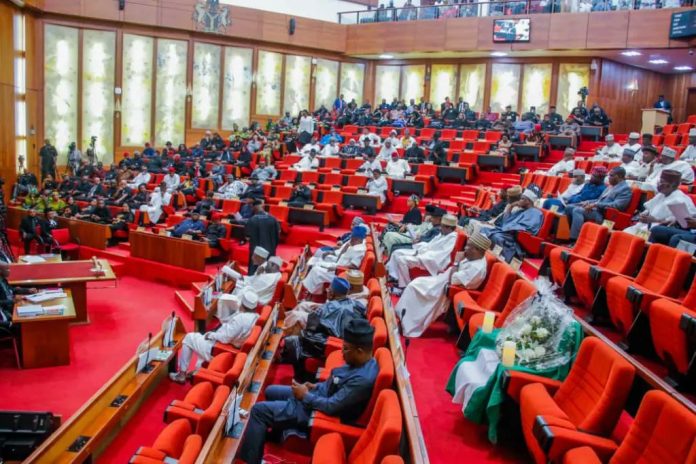The Senate has given the Nigerian National Petroleum Company Limited one week deadline to explain the financial discrepancies totalling over N210tn in its audited financial statements spanning 2017 to 2023.
The ultimatum was issued on Wednesday during a heated session of the Senate Committee on Public Accounts, where NNPCL’s Chief Financial Officer, Dapo Segun, and other top executives appeared for questioning.
Lawmakers expressed outrage over what they described as “mind-boggling” irregularities in figures listed under accrued expenses and receivables in the company’s official reports.
The committee Chairman, Aliyu Wadada, did not mince words, branding the inconsistencies as “unacceptable” and warning that the Senate would pursue the matter to the full extent of its oversight powers.
“We are looking at over N210tn in just two categories—accrued expenses and receivables. These are not mere rounding errors; they raise fundamental questions about transparency and financial integrity,” Wadada said.
According to the Senate, the audited reports showed accrued expenses of N103tn, which included N600bn in retention fees, unspecified legal fees, and auditor charges—all without any accompanying documentation or referenced contracts.
“How do you quote N600bn in retention fees with no contract to back it up?
“There are legal fees with no record of the legal services rendered. It’s completely unjustifiable,” Wadada queried.
He said even more alarming was a N103tn figure listed under receivables.
The committee revealed that NNPCL submitted a revised document just moments before the hearing, one which contradicted the audited statements already made public.
“The new document completely distorts the figures in the official audit. We find that not just ridiculous, but deeply troubling,” Wadada noted.
He expressed concern that NNPCL went ahead to release and sign off on these audited financials despite ongoing internal reconciliations.
He warned that such actions could undermine Nigeria’s credibility on the global financial stage, especially with the company’s planned Initial Public Offering.
“How do you proceed to finalise audited accounts while still reconciling such massive figures? These aren’t internal memos; they’re public documents that potential investors will scrutinise,” he said.
The committee, however, submitted a set of 11 critical questions to NNPCL and expects detailed responses within one week.
Lawmakers stressed that this was not a witch-hunt, but a necessary step to uphold fiscal discipline amid the government’s broader push for revenue generation.
Wadada made reference to President Bola Tinubu’s Renewed Hope Agenda, saying it hinged on transparency and financial prudence.
“In a country striving to change its national narrative, access to accurate and verifiable financial data is non-negotiable. These kinds of discrepancies sabotage that mission,” he added.
In a twist that further deepened concerns, the Senate discovered that between 2017 and 2021, a key NNPCL subsidiary—National Petroleum Investment Management Services—declared N9tn in profit, while the parent company, NNPCL, reported a loss of N16bn during the same period.
Wadada asked: “How can a subsidiary report trillions in profit while the parent company bleeds losses?”
The Senate, therefore, vowed not to let the matter slide, promising to exhaust every legislative mechanism to ensure accountability.
“This isn’t just about balancing books—it’s about restoring trust in public institutions. Every single kobo must be accounted for,” Wadada said.

